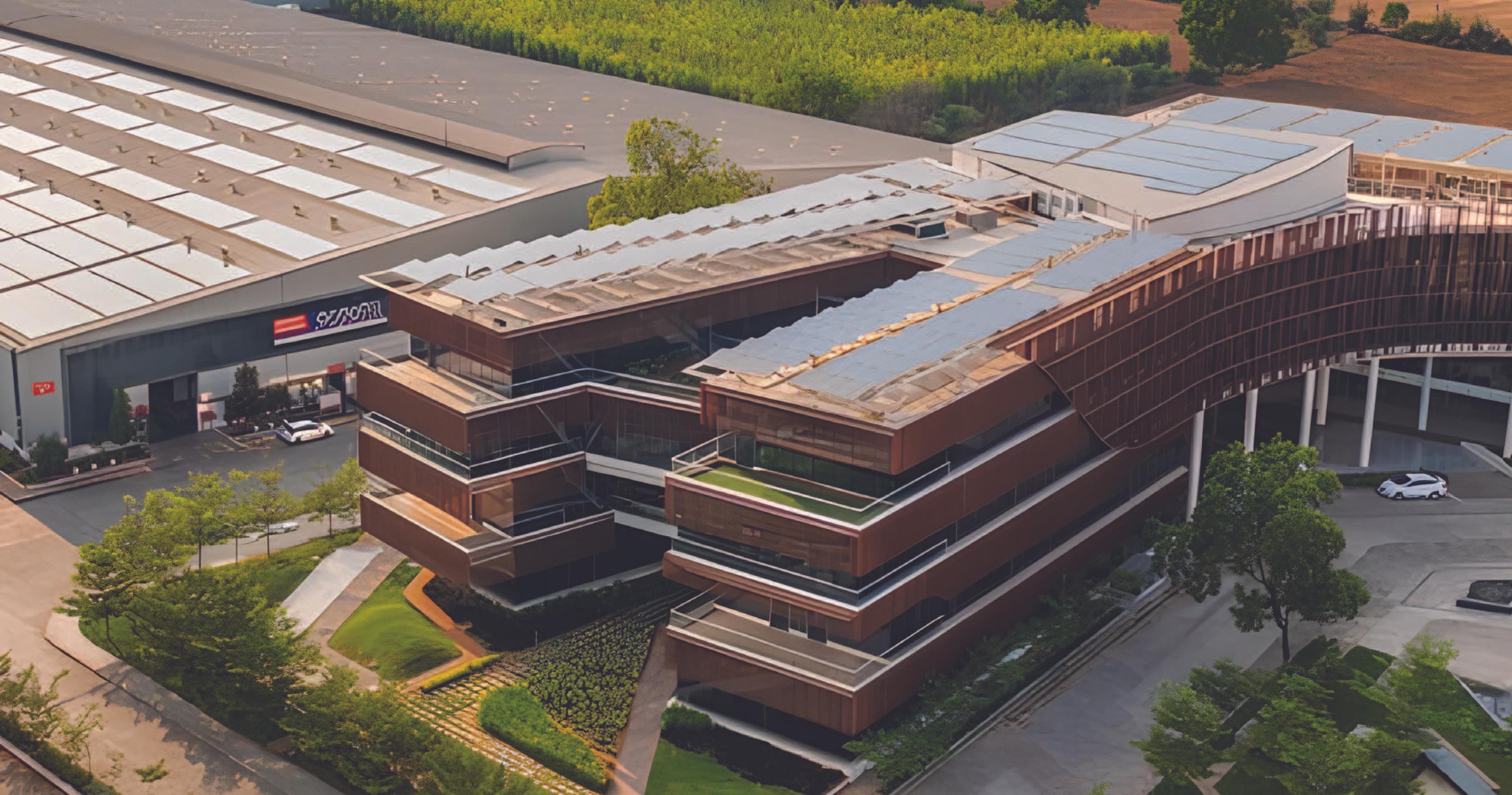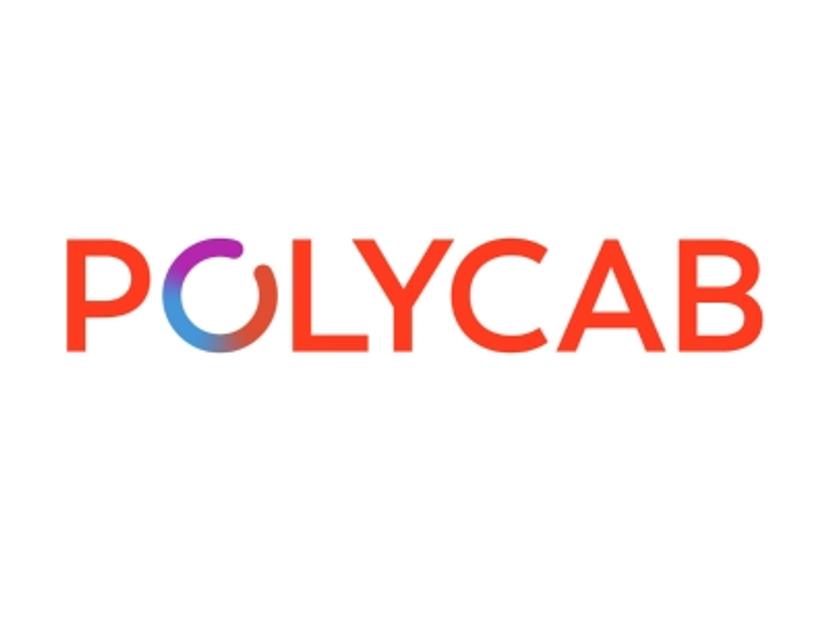Abstract
Polycab India Limited is India's largest manufacturer and seller of an extensive range of Wires and Cables and a prominent player in the Fast-Moving Electrical Goods (FMEG) industry with an established export presence in 70+ countries. Globally, it ranks among the top 10 wire and cable manufacturing companies with an aim to be among the top 5 in the near-to-medium term. The company has more than 25 manufacturing facilities, and a revenue of $2 Billion.
Polycab sells a varied range of wires and cables for retail and industrial use, catering to a diverse customer base across a wide range of industries, led by a combination of robust manufacturing capabilities, research & development, financial fundamentals, backward integration, and a defined growth strategy. This case study explores the key milestones in the company's evolution, its diversification strategies, the pivotal moments that have shaped it into one of India's leading names in electrical products and its Australia market-entry.
Introduction
The Jaisinghani family ran Sind Electric Stores, a small hardware and electrical store in Mumbai, which sold fans, lights, switches, and wires. In 1968, the sudden passing of Thakurdas Jaisinghani left his 15-year-old son, lnder Jaisinghani, with the responsibility of taking over Sind Electric Stores, located in Lohar Chawl - Mumbai's epicentre for electrical goods and products, and a trading zone. lnder, had the support of his older brothers, Girdhari, and Ajay, along with his younger brother, Ramesh, who rallied together to amplify the family's legacy. The pivotal point came in 1983, when they started a firm named Polycab to manufacture and process PVC insulated wires and cables as well as copper, bare copper, and aluminium wires, electrical goods at a large scale at Halol in Gujarat. The company was registered as an industrial unit by the Directorate of Industries, Government of Gujarat.
In 2008, the International Finance Corporation, the private equity arm of the World Bank, invested in the company and acquired a stake. In 2009, the company diversified into the Engineering, Procurement and Construction (EPC) business, which included the design, engineering, supply, execution and commissioning of power distribution and rural electrification projects. In 2014, they decided to start manufacturing electric fans, LED lights, switches and switchgears, conduits, solar products, and other electrical accessories. industrial facilities, and offices.
This venture into the Fast-Moving Electrical Goods (FMEG) sector saw Polycab's products being used in panels, streetlights, floodlights, open area lighting in homes, restaurants, call centres, hotels, retail stores, banks, hospitals, residential colonies, parks, industrial facilities, and offices.
In 2019, Polycab made its debut in the stock market through an initial public offering, becoming listed on both the National Stock Exchange (NSE) and Bombay Stock Exchange (BSE). The public offering saw an overwhelming response, with oversubscription reaching 52 times the initial offering size. This remarkable demand significantly boosted Polycab's net worth. Increased electrification and investment in the power sector further boosted Polycab's stock, leading lnder Jaisinghani to join the ranks of India's billionaires in 2022.
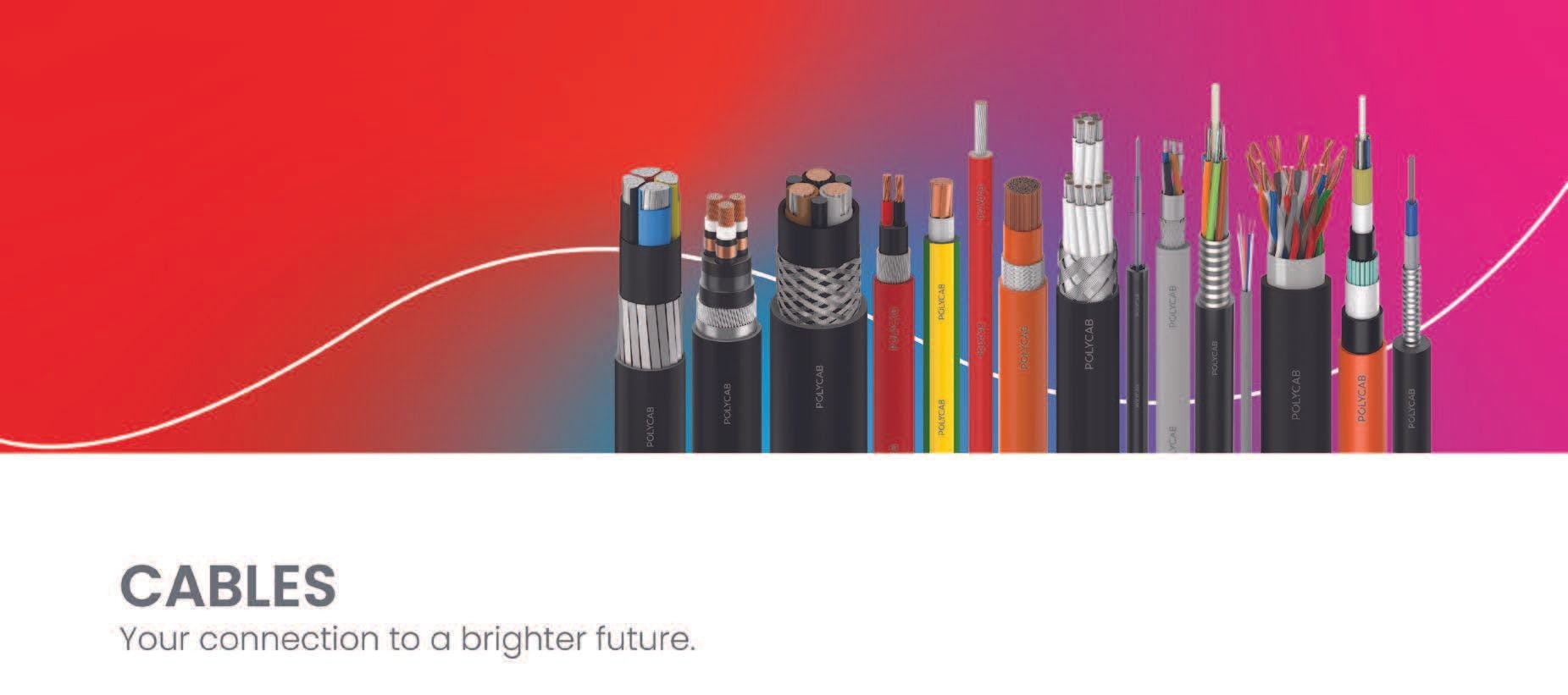
With over 4,100 dealers and distributors, 160,000 retailers and 30 warehouses, Polycab has 25 manufacturing facilities, including joint venture with Techno, located across Gujarat, Maharashtra, Uttarakhand and the union territory of Daman and Diu. It has adopted automation systems in its manufacturing process, such as the Manufacturing Execution System (MES) - an automated sensor base system for recording the actual consumption of raw materials in production, Enterprise Resource Planning (ERP) systems as well as Maynard Operation Sequence Technique (MOST) to increase productivity and optimise capacity utilisation.
Polycab maintains a robust global presence bolstered by its extensive expertise within the Power, Oil & Gas, Renewable Energy, Nuclear and Infrastructure sectors. The company is strategically focused on expanding its global market share by extending its footprint into key industries such as mining, offshore infrastructure, automotive, telecommunication and agriculture.

Australia Strategy
In 2020, Polycab expanded its global reach, establishing a sales subsidiary in Sydney, New South Wales, as part of its entry into the Australian market. This strategic decision was motivated by Australia's robust macro-economic foundation, a steady GDP growth rate, minimal national debt, well-established banking infrastructure, a favourable business environment, fair competition, and a reputation for maintaining sound business practices. The choice of Sydney as the entry point was a deliberate move, considering its reputation as a business hub.
Australia's largest trade wholesale distribution business, with over 400 warehouses nationally, specialising in a one stop sourcing and supply solution for the electrical, communications and data, solar, lighting and associated electrical component markets, "MMEM/TLE", was chosen by Polycab to represent its product range across the country.
Polycab has solidified its position, effectively delivering cables to numerous renewable ventures across Australia. The notable "MacIntyre" Australia's Largest Windfarm boasting a 1 GW capacity, is currently under construction by Acciona in Queensland, and the power flows through the cables provided by Polycab. The scale of the MacIntyre project makes it one of the largest onshore wind farms in the world today.
"The World Bank's Doing Business Survey placed Australia at 14th position in ease of doing business, and at 7th position for easiest country to start a business in." - Anurag Agarwal, Director, Polycab Australia Pty Ltd.
“The shared values of pluralistic, Westminster-style democracies, Commonwealth traditions, expanding economic engagement (ECTA), and increasing high-level interaction have underpinned the India-Australia bilateral relationship. The shared English language acts a foundation of closer cooperation as the overall dialogue becomes easier.”
To gain a deeper understanding of the Australian market, Polycab initially formed partnerships with Business Associates, effectively reaching out to prospective clients. Building on the traction gained and heeding the valuable input from these clients, they recognised a robust demand for a local presence. This analytical insight prompted the establishment of a dedicated Sales Subsidiary, officially named "Polycab Australia Pty Ltd."
Australia’s increasing interest in renewable energy, has provided Polycab a timely opportunity to strategically position itself as the go-to supplier for all renewable energy cable and wire need, building trust and relationships in the domestic market. This success, has propelled them to broaden their offerings now extending into vital sectors such as infrastructure, utility (electricity distribution), and mining, aligning with the nation's key focus areas.
“Establishing a sales subsidiary with resources available locally reaped us multiple benefits such as improved accessibility to the local market, State government’s incentives for domestic players, better availability and support to our clients throughout the region.”
“Almost 90% of the cables that are utilised in Australia for various projects are imported from across the globe. The scope of demand and business opportunity was quite clear for us to take an initiative in creating a solid business model for the Australian market.”
“The ongoing talks between Australian and Indian governments to develop a full-fledged trade treaty has further imparted and established a sense of confidence within our management. We strongly believe that Polycab can become more competitive within the region once the treaty is fully active.”
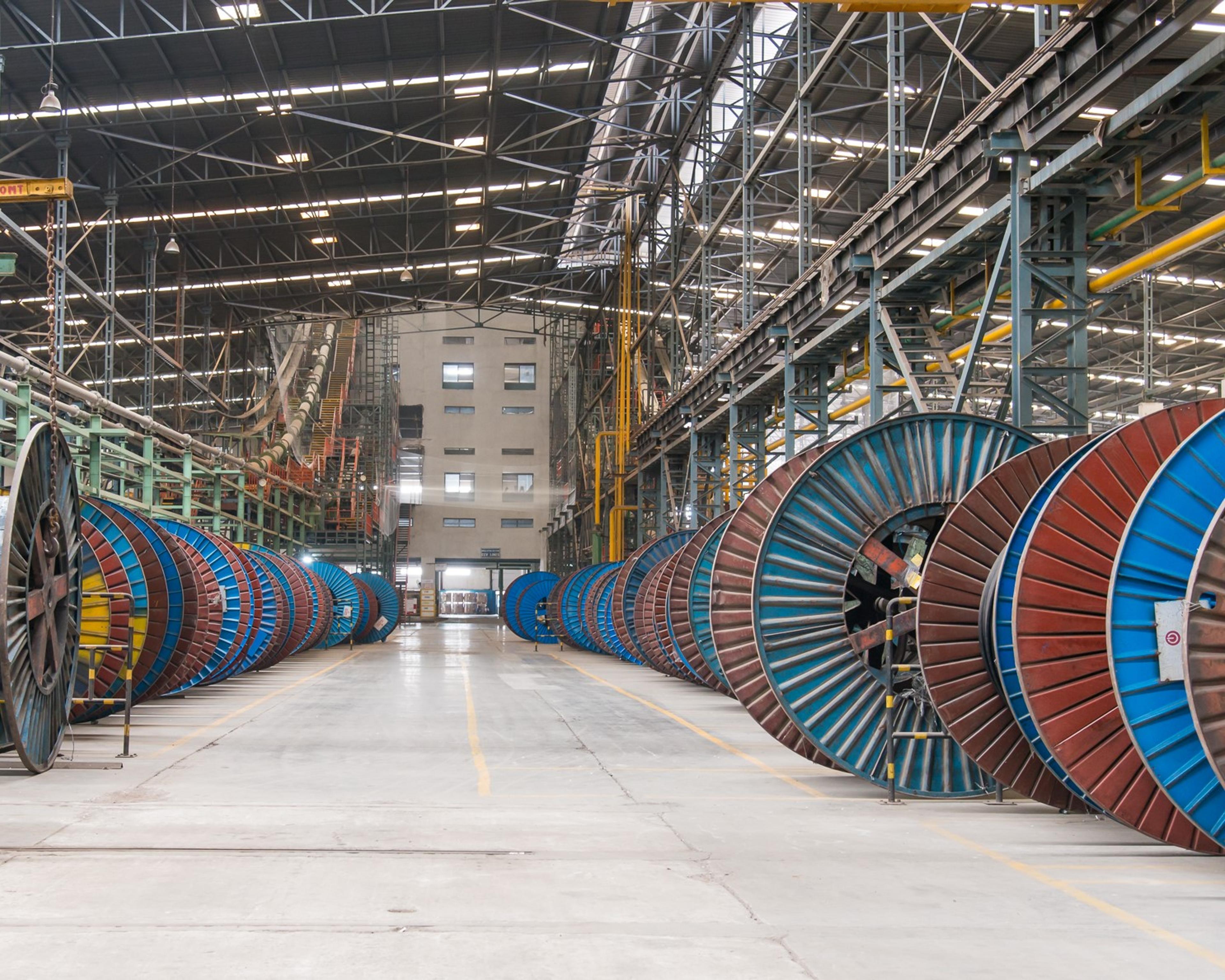
Seeing The Future
With global footprint in 70+ countries, Polycab’s international business is looking at further expansion with increase in global spends in sectors such as renewables, oil & gas, and infrastructure. The company’s aspiration is to position itself as the preferred provider of cable and wiring solutions, and developing new, innovative products that align with market trends and customer preferences.
The company refers its initial growth days as Polycab 1.0. The IPO milestone achieved in FY19 was the beginning of Polycab 2.0. Currently, in its 3.0 stage, Polycab has outlined a five-year plan (FY21-FY26) under Project LEAP to elevate its overall performance and strengthen its leadership in both B2B and B2C space.
In Aug 2023, Polycab underwent a massive transformation by rebranding itself. The renewed brand ideology is Polycab’s commitment to innovation, technology, safety and sustainability. Their vision is to become the foremost brand of choice for global customers in the electronic solutions sector. With a booming manufacturing sector, cutting-edge technology-driven services, thriving start-up ecosystem, focus on net-zero emissions and rise of smart cities, Polycab is also looking to capitalise on the growing demand for extra high voltage (EHV) cables. Its technology tie-up with Swiss company Brugg Cables for up to 550 kV voltage products, is focused on accessing this high-growth market.
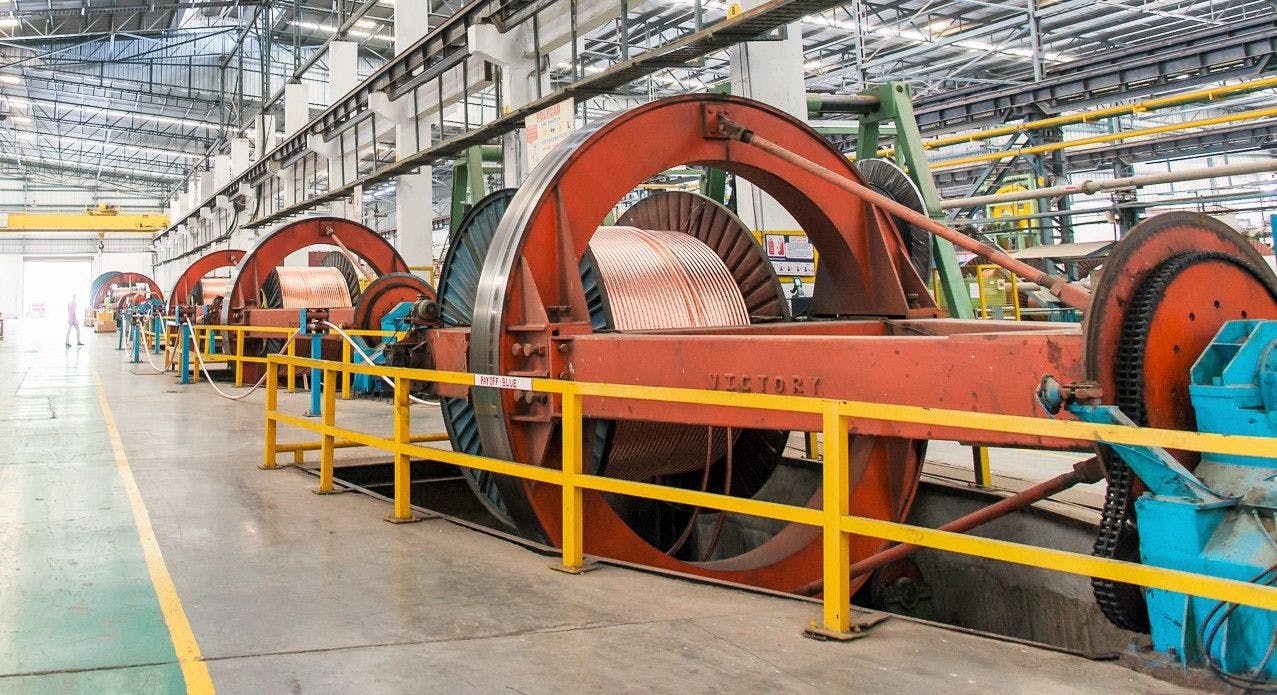
The business has strategic plans to tap the opportunities offered by defence, railways, EV industry and data centres, as well as telecom domains. Polycab was the wires and cables partner for India’s famed indigenously built warship, INS Vikrant, and has a similar partnership for the newly launched Goa International Airport. It is also vying for larger opportunities in the FMEG space, offering a comprehensive product portfolio to gratify all the essential electrical needs of a home, office, or a corporation. It has introduced ‘Green Wires’ that has a higher current carrying capacity than other conventional wires and is an environment-friendly product for addressing energy requirements of industries and households. It is constantly enhancing its R&D capabilities around crucial raw materials to capitalise on current market trends through its state-of-the-art research facilities.
Planning Ahead
"The Australian market is very inclusive of new suppliers/businesses, provided we adhere to the set standards and policies."
One of the most distinct aspects of Polycab is its net-debt-free structure and a strong revenue playbook, that keeps the growth prospects very positive. The key takeaways from this case study are -
- Polycab demonstrated strategic acumen in identifying markets characterised by significant global import demand. The ACT East Policy, global wave of reducing reliance on Chinese imports and growing momentum in bilateral ties between India and Australia, paved way for Polycab to establish a wholly owned subsidiary in Australia for trading wires and cables
- The Australian market is highly compliant and quality conscious market, companies willing to enter this region needs to address this suitably within their strategy
- The cables and wire market is extremely competitive, facing competition from other manufacturers, traders, suppliers and importers of electrical equipment, hence, technical competence, product quality, strength of sales and distribution network, pricing, and timely delivery play an integral part in market consolidation.
Under 'Project Leap', the company has set a five-year roadmap to achieve substantial improvement in its revenues by 2025-26, with its focus on brand positioning, new product development, scaling operations, customer-centricity, talent acquisition, go-to-market excellence, and good governance. From a small store to a billion-dollar electrical empire, the story of Polycab, is propelled by a strong foundation, a diverse product portfolio, and a focus on strategic growth.
